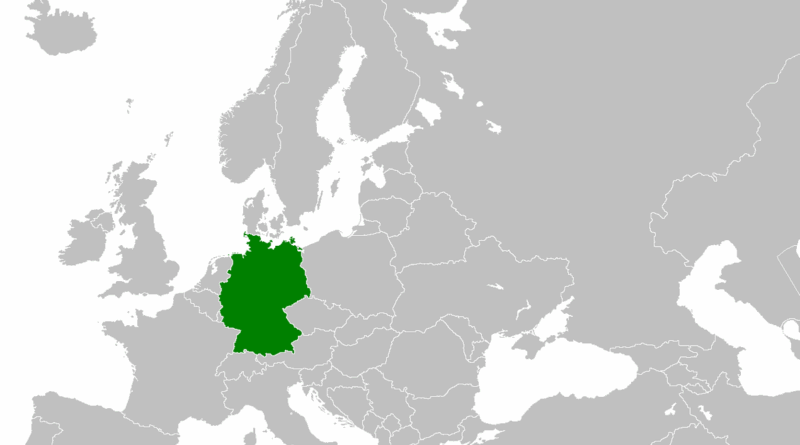European Commission President Suggests Trade Suspension with Israel
During her recent State of the Union discourse, Ursula von der Leyen, the President of the European Commission, suggested a suspension of certain trade facets with Israel. The European Union has been inching towards a firmer stance against Israel’s government, and any wavering on Germany’s parts would have significant implications.
The thought of pausing the trade elements of the European Union’s Association Agreement with Israel is not a sudden notion from the President of the European Commission. Lack of specificity notwithstanding, urgency for the EU to counteract the Israeli government’s actions has been evident, as these actions are ostensibly in violation of Europe’s prime principles.
For an extended duration, the EU’s predicament has been that even though a majority of its member nations, notably with Ireland leading the charge, have been advocating for action, trade issues can only be tackled through a qualified majority. Until now, a compact cluster of countries, notably Germany and Italy, had successfully stonewalled the majority’s intention.
Now, a change has been initiated by the Commission to back substantial trade actions. The pivot increases the chance of securing the needed qualified majority for an action against Israel. However, attaining this goal necessitates a shift in stance from one or several dissenting member nations, with Germany bearing crucial responsibility and potential influence.
Contemporary Germany exhibits two striking aspects. Firstly, it represents an admirable and democratic nation, strongly endorsing the European Union and its values. At the same time, it shoulders a profound guilt stemming from the Holocaust. Simultaneously addressing and reconciling both these elements, particularly in the context of the Gaza conflict, is increasingly challenging.
There are quintessential reasons why Germany’s modern ethos, instead of historical guilt, must prevail in its position towards the Commission’s proposal of suspending particular aspects of the EU’s trade relationship with Israel. Highlighting Germany’s historic guilt shouldn’t mean diminishing its admirable acceptance of its own responsibility for genocide or dismissing Germany’s historical sensitivities.
The first cause for Germany to back the Commission’s proposal resides in the fact that actions of Benjamin Netanyahu’s administration towards Palestinians in Gaza and the West Bank are noxious by standard decency norms. It is implausible for today’s Germany to be complacent about the indiscriminate slaughter of countless innocent lives or the deliberate leveraging of hunger as a wartime apparatus.
Secondly, while the judgment whether Israel’s actions legally constitute genocide will rest with international courts, certain signs point in that direction. Germany’s laudable commitment to preventing genocide’s recurrence must not simply conflate with outright support for the current Israeli government. It’s up to the German populace to grapple with their intricate history.
The disturbing belief that underpinned Hitler’s horrific campaign to exterminate the Jewish populace was the concept of racial superiority and inferiority. Regretfully, the current Israeli government, in stark contrast with everyday Israelis, seems to consider Palestinians as inferior citizens, expendable lives. This is evident in an Israeli Minister’s reference to Palestinians as ‘human animals’.
For Germany to reconsider its stand is crucial for the third reason, reflecting the fact that a large segment of Israelis desire an end to Israel’s offensive, and return of hostages detained in the deplorable 7 October attacks by Hamas terrorists. Most Israelis express their lack of faith in the Netanyahu administration and their fear for the future of Israeli democracy.
When contemplating its long-term support for Israel, the German government must consider Israeli citizens’ sentiment, the sustenance of their democracy, and the stance of Netanyahu’s administration. Moreover, the reprehensible behavior of the Israeli government has shocked a significant number of global Jewish individuals.
Fourthly, there has been an observed shift in German public opinion. While it might be deemed intrusive for outsiders to offer counsel, the German administration must consider the evolving sentiment among their citizens. Ursula could be seen as a mirror of German guilt, attributing her past indecisiveness towards the Gaza conflict. By proposing trade actions, she reflects both her personal shift and that of the European Commission.
A number of former German diplomats have signed a statement urging for rigid actions against Israel, raising it beyond what the Commission President planned. Lastly, the critical factor, the EU’s incapacity to address the Gaza conflict due to blockage from a minority, with Germany key, has been damaging the EU’s reputation among its citizens and globally. It also allows allegations of double standards, considering Europe’s proactive stance against Russian aggression.
This inconsistency, highlighted by the similarities between Russia’s aggression in Ukraine and Israel’s conduct — land acquisition, intentional civilian targeting, and other war crimes — is striking. Germany is notably sensitive that the EU must suitably rise to confront escalating challenges. Helping Europe maintain a principled stance on the Gaza conflict could be a vital stride in that direction.

